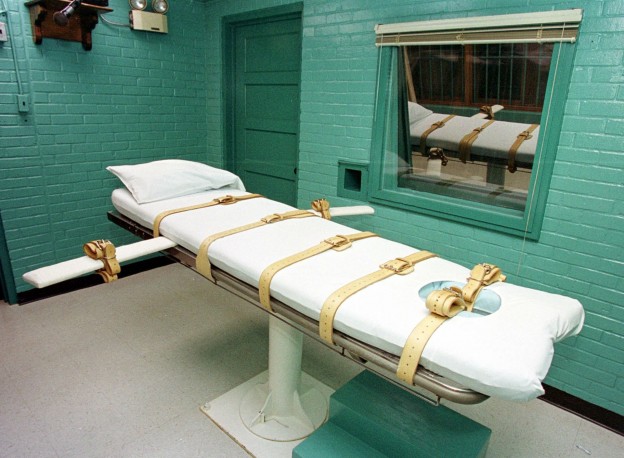The High Cost of Dying
One of the common “conventional wisdom” arguments for the death penalty is that a few ounces of drugs, a few kilowatts of electricity, a few bullets, or a few yards of rope are cheaper than feeding, housing, and clothing a convict for the rest of his or her life.
However, the cost of the actual killing is just a drop in the ocean compared the full cost of bringing the condemned the full distance from arrest to the death chamber. The dual layers of the original trial, guilt and penalty phases, is just the first of the many additional costs imposed by the machinery of capital punishment.
On top of the extra trial costs, every death penalty case usually creates numerous trips through the appeal system, and the taxpayers often end up bearing much of the associated costs, including court costs, the state’s attorneys, and often the condemned’s legal team as well.
Death penalty advocates usually have a “solution” for that “problem,” namely limiting the number of trips through the appeal process given to each death row inmate. This is far easier said than practically done. What proponents of this want to do, without actually saying so, is to legislatively short-circuit the convict’s access to due process, which is not only abhorrent to the American concept of fairness before the law but, given the life-and-death stakes, completely immoral as well.
No legislative approach can accurately predict, for all cases, just how many appeals a condemned person might need to get exculpatory evidence before the right judge. For any innocent or unjustly condemned man or woman awaiting execution, no number of appeals is too many.
It is better that ten guilty persons escape than that one innocent suffer.
Sir William Blackstone (1765)
Sir William Blackstone’s formulation is the backbone of both American and British criminal justice, and if by limiting appeals for death row inmates, an innocent person dies because they had exhausted some arbitrary limit on their appeals, than that limit and death have conspired to deny that person their due process.
Even without those limits, a person’s death effectively ends all appeals, and if evidence exonerating a person were to emerge after their execution, than it could be said that the death penalty itself was a denial of due process.
So with no morally defensible limit on the number of appeals for the condemned, it will continue to be the case that supplying a guilty person with a bed, orange jumpsuits, and bad food for the rest of their natural life is actually a greater expedient than sticking a needle in their arm.
